- Home
- Matt Rogers
Warrior: A Jason King Thriller (The Jason King Files Book 2)
Warrior: A Jason King Thriller (The Jason King Files Book 2) Read online
Warrior
The Jason King Files Book Two
Matt Rogers
Copyright © 2017 by Matt Rogers
All rights reserved.
Cover design by Onur Aksoy.
www.liongraphica.com
Contents
Reader’s Group
Books by Matt Rogers
Chapter 1
Chapter 2
Chapter 3
Chapter 4
Chapter 5
Chapter 6
Chapter 7
Chapter 8
Chapter 9
Chapter 10
Chapter 11
Chapter 12
Chapter 13
Chapter 14
Chapter 15
Chapter 16
Chapter 17
Chapter 18
Chapter 19
Chapter 20
Chapter 21
Chapter 22
Chapter 23
Chapter 24
Chapter 25
Chapter 26
Chapter 27
Chapter 28
Chapter 29
Chapter 30
Chapter 31
Chapter 32
Chapter 33
Chapter 34
Chapter 35
Chapter 36
Chapter 37
Chapter 38
Chapter 39
Chapter 40
Chapter 41
Chapter 42
Chapter 43
Chapter 44
Chapter 45
Chapter 46
Chapter 47
Chapter 48
Chapter 49
Chapter 50
Chapter 51
Chapter 52
Chapter 53
Chapter 54
Chapter 55
Chapter 56
Announcement
Afterword
Reader’s Group
About the Author
Join the Reader’s Group and get a free Jason King book!
Sign up for a free copy of ‘HARD IMPACT’.
Experience one of the most dangerous operations of King’s violent career.
Over 150 pages of action-packed insanity in the heart of the Amazon Rainforest.
No spam guaranteed.
Just click here.
Books by Matt Rogers
THE JASON KING SERIES
Isolated (Book 1)
Imprisoned (Book 2)
Reloaded (Book 3)
Betrayed (Book 4)
Corrupted (Book 5)
Hunted (Book 6)
THE JASON KING FILES
Cartel (Book 1)
Warrior (Book 2)
THE WILL SLATER SERIES
Wolf (Book 1)
“In the midst of chaos, there is also opportunity.”
Sun Tzu
1
July 8, 2007
Port of Mogadishu
Somalia
Abdullahi stepped out of the inspection shed’s shadow, offering himself to the relentless heat of the Somali sunshine. He had been a dock worker for eight years now. The constant exposure to the elements had hardened his skin to the point where little affected him — hours under the cloudless sky were routine, as was the exertion and strain that came with handling the heavy equipment littering the port. All of it acted as a complicated grid, a puzzle that no single man could decipher. Thousands of shipping containers flowed in and out of the port every day, loaded off small bulk transport ships and larger intercontinental vessels.
By this point, Abdullahi’s work had become a blur.
As had the payments.
He sauntered along a disused path squashed between two terminals, the trail littered with gravel and the ground on either side overflowing with weeds and rubbish. He checked his cracked wristwatch covered in fingerprint stains — two minutes until the cargo was scheduled to be off-loaded. Abdullahi had been around the port long enough to know that just as the sun rose each morning, the containers were off-loaded at the precise minute they were expected to be.
Like clockwork.
In an industry as enormous as modern shipping, nothing could be late.
That left all kind of room for Abdullahi and hundreds of thousands of others to take advantage of the lax security measures. Especially in a land like this.
The trail opened out into a vast concrete dock facing the Indian Ocean. Abdullahi cast his gaze across a sea of shipping containers, thousands upon thousands arranged in a neat grid.
TEUs, to be specific.
The Twenty-foot Equivalent Units were — as the name suggested — twenty feet long, eight feet tall, and eight feet wide. Handling them had become as common in Abdullahi’s life as breathing and sleeping and eating.
Today, he was concerned with one unit in particular.
The instructions had been passed along to him in the same manner they always were — through an anonymous phone call informing him of a tracking number. When he first dipped a finger in the gargantuan pie of global smuggling, it had scared him senseless. He’d often answer the phone expecting a death sentence for his troubles.
Then he realised that everyone — all the way from the heads of multinational corporations to the low-level street vendor — was involved.
And it had settled his heart rate years ago.
Now, all fear and tension had dissipated entirely. The contents of the TEUs were never anything sinister, or significant — just ordinary goods necessary for maintaining the country’s infrastructure that weren’t declared accurately. It wouldn’t have bothered Abdullahi if it were narcotics or firearms, but at least it put his mind at ease.
He couldn’t care less either way.
He went through the practiced motions of diverting a specific container, relaying instructions to the nearest crane driver via a dusty two-way radio at his hip. He saw a helmet nod understandingly inside the cabin a hundred feet in the air, and the giant contraption plucked a single grey TEU effortlessly off the top of the nearest stack.
As if on cue, three Mercedes trucks rumbled into the dock from a connecting passageway. They pulled to a halt, one by one, forming a tight semi-circle in a manoeuvre that had been carried out a thousand times over by each driver. They were never early nor late, as usual.
Always right on time.
It paid to be accurate.
The driver of the middle truck stepped down first, crossing the hot stretch of concrete to greet Abdullahi underneath the shadow of the crane. Abdullahi wasn’t sure if he recognised the man — by this point, the drivers blurred into an amalgamation of sweaty thin Somali men. Sometimes he got Europeans — they stood out. Men and women bold and brazen enough to venture into a foreign land in search of more money than they knew what to do with.
Profit had no distinct colour, after all.
The driver nodded once, and wordlessly handed over thirty-five thousand USD, held together by a thick band. Abdullahi took the wad of notes and slipped them into his back pocket. A moment later, the container touched down on the ground in front of the trucks, barely audible due to the crane driver’s experience handling the TEUs. Abdullahi gestured invitingly to the unit, and the driver smiled, exposing cracked yellow teeth.
Abdullahi knew that smile.
He knew it well.
It meant cash.
A long, flowing pipeline of cash, more cash than any of them could grow used to. Anyone who found themselves involved in the extra-legal channels of global trade found it hard to leave. It was never clear exactly what laws were being broken, especially when the business involved a country such as
the one Abdullahi had been raised in.
Somalia.
A hell-hole, or a garden of riches.
Depending on who you asked.
The three drivers, along with a horde of dock workers who scurried to assist with the transaction, set about unloading the contents of the TEU into the massive Mercedes trucks. Abdullahi turned his back on the proceedings, setting off for the head office with a delivery of dirty profits in his khaki trousers. He didn’t care what was in the container. More often than not it was a mixture of cigarettes, tools, timber, counterfeit sneakers — any everyday item that could avoid being taxed.
Abdullahi shook his head as he walked, imagining what people in first-world countries thought of the illegal pipeline. He had seen snippets in the media of the light his business was cast in. Wrought with images of hardened criminals and muscle-clad thugs trading cocaine and heroin and automatic weapons back and forth.
The truth was far more mundane.
But that didn’t make for good television.
Still striding with measured paces, he reached back and slid a hand into his rear pocket. Carrying out movements he’d practiced countless times, he separated fifty bills from the chunky wad, each of them one hundred USD.
With two fingers acting as pincers, he siphoned five thousand out of the main band and let the bills spill loose into the depths of the pocket.
Simple as that.
He strolled into a rundown one-storey building with flimsy plaster walls and a rusting screen door hanging ajar. The man with the pockmarked face scarred by serious acne seemingly hadn’t moved since last week. Abdullahi visited him seven days a week, at the same time, without fail.
There was too much money in this business to bother taking a day off.
‘Issues?’ the man said.
Abdullahi shook his head. He only spoke when absolutely necessary. This was not one of those times. Acting as if he hadn’t altered the stash in any way, he reached back again and slid out the thirty thousand dollars the driver had given him.
There was no mention of the other five, because this man in front of him had no idea it existed.
He passed the wad across, making sure to pin the thick band into place on the underside of the notes with his thumb, ensuring that the dock’s owner didn’t spot the missing portion.
The man expected thirty thousand every day, and that was what Abdullahi provided.
What the guy didn’t know wouldn’t hurt him.
With another curt nod signifying the culmination of the exchange, Abdullahi turned on his heel and left the building as quickly as he’d entered it.
Eight hours complete at the port. As the sun dipped toward the opposite horizon, casting a golden glow across the towers of TEUs, he made for the employee car park — a section of the port consisting of a flat gravel expanse and a maze of overflowing dumpsters. The fifty unaccounted bills rustled back and forth in his pocket as he strode, reminding him of the risk he accepted every single day.
Months ago, when it had first begun, Abdullahi had promised himself he would only keep up the charade for a week. Seven straight days of siphoning five thousand USD from the transactions, and he would end up a very rich man.
Then he had realised the ease with which the process had been carried out, and it dawned on him that no-one gave a shit about a measly five thousand per day in the grand scheme of things.
So he’d continued.
Like clockwork.
The sheer magnitude of the pipeline was an untapped goldmine for lowly dock workers like himself. It had begun with a simple request to the trucking company from an anonymous payphone in the port.
‘Each container is an extra five thousand,’ Abdullahi had said into the receiver. ‘There’s been unexpected costs lately.’
‘Okay,’ came the reply.
A single syllable that had allowed him — just a measly rung in the extra-legal ladder — to tuck nearly four hundred and fifty thousand USD away in his disintegrating shack on the outskirts of Mogadishu.
None of the truckers had cared to enquire any further about the details. He had come to learn that the criminal industry relied implicitly on trust, and if one went snooping around, causing disruption, it spelled disaster. Besides, in an industry that handled close to a hundred million dollars per day across Africa, a measly five thousand increase was barely notable. The truckers showed up with thirty-five thousand each day, and Abdullahi was there to receive it, without fail.
And siphon off his portion.
Now he clambered into a barely functioning, open-topped jeep and fired the engine to life. Before he had put his plan into action, he’d been dead broke. The dock work barely paid enough to feed his wife and child, let alone himself. He had stumbled across the abandoned vehicle whilst hiking to the port one morning, its windscreen shattered and bullet holes riddling the chassis.
A remnant discarded from the Somali Civil War.
The keys had been in the ignition, and it started. Abdullahi had ignored the bloodstains on the seats and set about turning the jeep into a functioning ride. As long as it got him to and fro his intended destination, he didn’t care how bumpy the ride was.
Now, he pulled out of the gravel lot and rumbled onto a potholed trail, making for the distant outskirts of Mogadishu. There he owned a dismal one-room shack in a field choked with weeds and grass. He kept his head down and took care of his family, opting to devote himself to his job instead of aligning with a particular faction of the grisly civil war, a war that had consumed Mogadishu.
The city had devolved into a madhouse.
Sitting on the fresh bills in his back pocket, jolting up and down as the jeep’s tyres battled with the uneven terrain, Abdullahi let his mind wander. He dropped his guard, tuning out the distant reports of gunfire and the groaning of industrial equipment in the port behind him. He thought of the four hundred and fifty thousand stuffed into the back of a rotting cabinet in the corner of his shack.
Enough money to start a new life.
Enough money to flee Somalia for good.
For himself, his wife, and his child.
His thoughts drifted away, contemplating what-ifs, and he didn’t notice the vehicle on his tail until it was far too late.
He pulled into the one-lane driveway to his shack exactly eight minutes after leaving the port.
As soon as he killed the engine he realised something was awry. He couldn’t quite pinpoint the exact nature of the hunch, but it set him on edge, raising the hairs on the back of his neck as he stepped down into the choking dust. The grounds were silent — yet that was nothing out of the ordinary. The front door hung wide open — yet his wife, Hani, often let the shack air when the temperature soared.
But something felt off.
Abdullahi touched a hand instinctively to the empty leather holster at his waist. The Browning Hi-Power he’d picked up last month from an al-Shabaab militant was still in his dresser from the night before. He hadn’t bothered to pick it up on his way out the door this morning, an effect of the unusual drowsiness he’d experienced upon waking.
You fool.
He stood frozen in the centre of the driveway, his gaze wide, his veins pumping, staring like a deer in headlights through the open front door of the shack. The Browning lay within, just a dozen feet away.
He shrugged off a sudden chill and walked straight inside, chalking the hesitation and suspicion up to an active imagination. Cautious, but ultimately misinformed.
Or not.
He stepped into the shack and gazed around at the contents of the room.
There was no sign of his wife and child.
Fear hammered through him, a stark realisation that threatened to buckle his knees and snatch the breath from his lungs. He hyperventilated, sucking in the thick air in great heaving lungfuls.
Without seeing anything to prove it, he knew his entire family were dead.
It was the nature of the world he lived in. A world he had precariously existed in for years
without incident, where armed bandits and Islamic militants and trigger-happy soldiers had the ability to strip him or his loved ones of their lives in the blink of an eye for no reason whatsoever. Every day he had lived with the weight of that burden on his shoulders, and it had been one of the main reasons for taking on more risk by siphoning profits off the top of an illegal pipeline. He had wanted out for years, and just as he’d stumbled across the chance, it had all been torn from him…
His eyes welled up as he scrutinised his surroundings. There was no sign of a struggle, but this was Somalia. If his family were not where they were supposed to be, they were as good as dead.
There was no alternative.
He heard the blade whistling through the air behind him a half-second before it punched through the skin across his lower back, rupturing internal organs with a horrific needling sensation. Abdullahi pawed uselessly behind him in a half-hearted attempt to fend off his attacker, but the knife wielder shoved him to the floor with a single push.
He had never felt strength quite like that.
With all the willpower sapping from his limbs, he sprawled out across the musty timber panels, already bleeding profusely. His attacker wrenched the knife out and slammed it home again, but Abdullahi barely felt the second puncture.

 Nature and Blight
Nature and Blight The Wolves of Third Clan
The Wolves of Third Clan Ghosts
Ghosts Bear
Bear The Will Slater Series Books 1-3
The Will Slater Series Books 1-3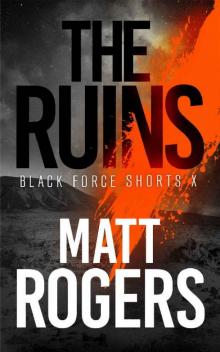 The Ruins
The Ruins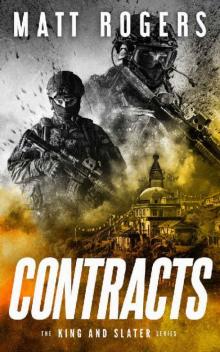 Contracts
Contracts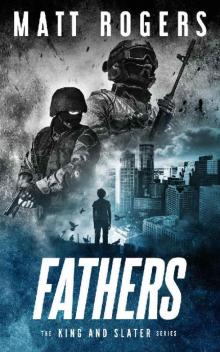 Fathers
Fathers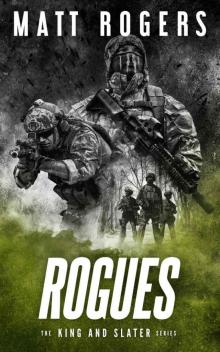 Rogues: A King & Slater Thriller
Rogues: A King & Slater Thriller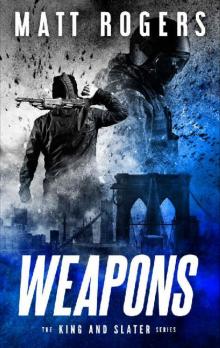 Weapons
Weapons Ciphers
Ciphers Lynx
Lynx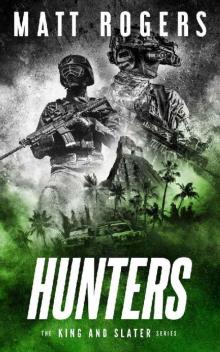 Hunters
Hunters Of Superior Design
Of Superior Design The Hidden: A Black Force Thriller (Black Force Shorts Book 4)
The Hidden: A Black Force Thriller (Black Force Shorts Book 4) Blood Money
Blood Money The Hidden_A Black Force Thriller
The Hidden_A Black Force Thriller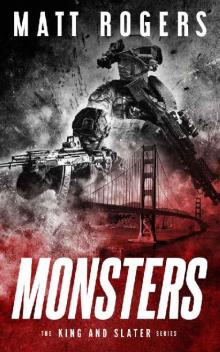 Monsters
Monsters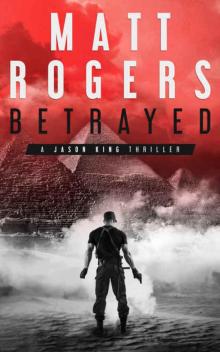 Betrayed: A Jason King Thriller (Jason King Series Book 4)
Betrayed: A Jason King Thriller (Jason King Series Book 4)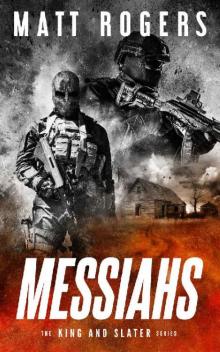 Messiahs
Messiahs The Wicked_A Black Force Thriller
The Wicked_A Black Force Thriller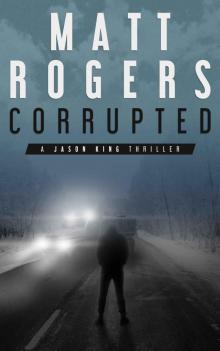 Corrupted: A Jason King Thriller (Jason King Series Book 5)
Corrupted: A Jason King Thriller (Jason King Series Book 5) The Jason King Series: Books 1-3
The Jason King Series: Books 1-3 Lion
Lion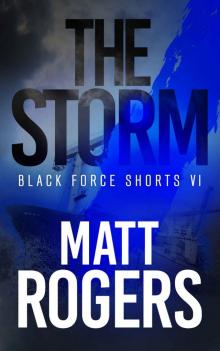 The Storm: A Black Force Thriller (Black Force Shorts Book 6)
The Storm: A Black Force Thriller (Black Force Shorts Book 6) Slayers (Jake Hawkins Book 1)
Slayers (Jake Hawkins Book 1)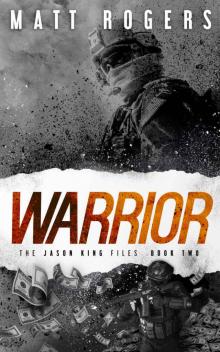 Warrior: A Jason King Thriller (The Jason King Files Book 2)
Warrior: A Jason King Thriller (The Jason King Files Book 2)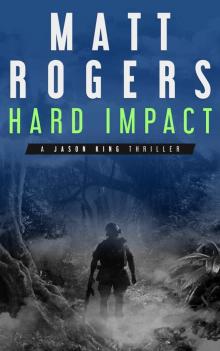 Hard Impact: A Jason King Operation (Jason King Series Book 0)
Hard Impact: A Jason King Operation (Jason King Series Book 0) The Wicked: A Black Force Thriller (Black Force Shorts Book 7)
The Wicked: A Black Force Thriller (Black Force Shorts Book 7)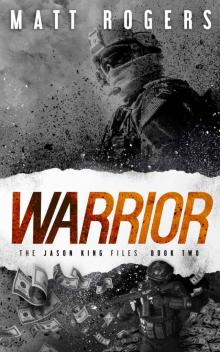 Warrior_A Jason King Thriller
Warrior_A Jason King Thriller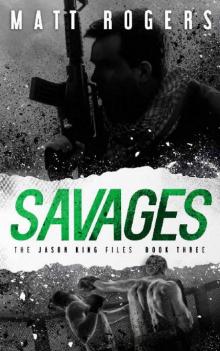 Savages: A Jason King Thriller (The Jason King Files Book 3)
Savages: A Jason King Thriller (The Jason King Files Book 3)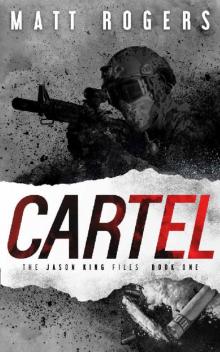 Cartel: A Jason King Thriller (The Jason King Files Book 1)
Cartel: A Jason King Thriller (The Jason King Files Book 1)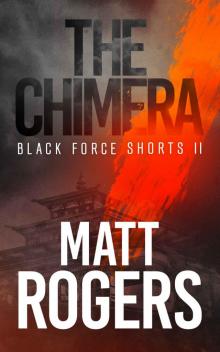 The Chimera_A Black Force Thriller
The Chimera_A Black Force Thriller The King: A Black Force Thriller (Black Force Shorts Book 8)
The King: A Black Force Thriller (Black Force Shorts Book 8)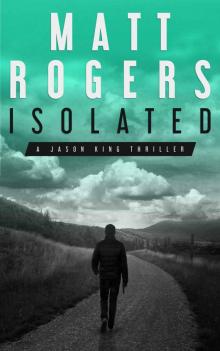 Isolated: A Jason King Thriller (Jason King Series Book 1)
Isolated: A Jason King Thriller (Jason King Series Book 1) The Victor: A Black Force Thriller (Black Force Shorts Book 1)
The Victor: A Black Force Thriller (Black Force Shorts Book 1)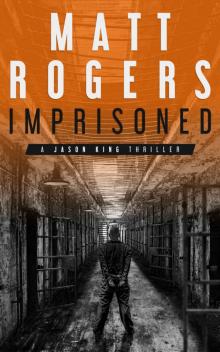 Imprisoned: A Jason King Thriller (Jason King Series Book 2)
Imprisoned: A Jason King Thriller (Jason King Series Book 2)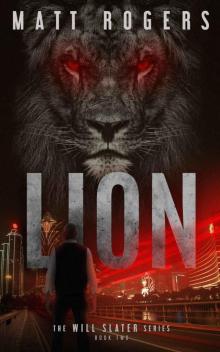 Lion: A Will Slater Thriller (Will Slater Series Book 2)
Lion: A Will Slater Thriller (Will Slater Series Book 2)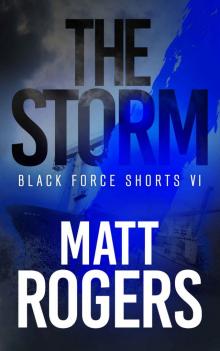 The Storm_A Black Force Thriller
The Storm_A Black Force Thriller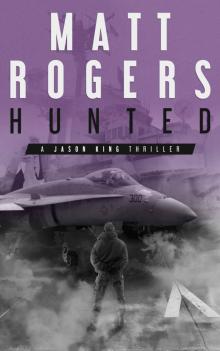 Hunted: A Jason King Thriller (Jason King Series Book 6)
Hunted: A Jason King Thriller (Jason King Series Book 6)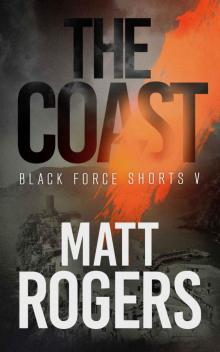 The Coast: A Black Force Thriller (Black Force Shorts Book 5)
The Coast: A Black Force Thriller (Black Force Shorts Book 5)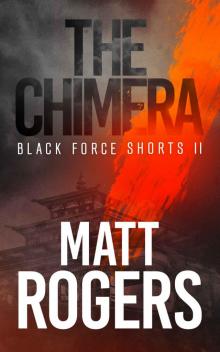 The Chimera: A Black Force Thriller (Black Force Shorts Book 2)
The Chimera: A Black Force Thriller (Black Force Shorts Book 2)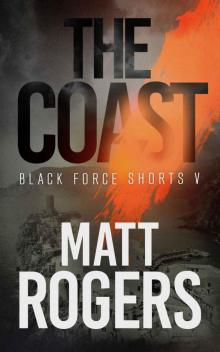 The Coast_A Black Force Thriller
The Coast_A Black Force Thriller